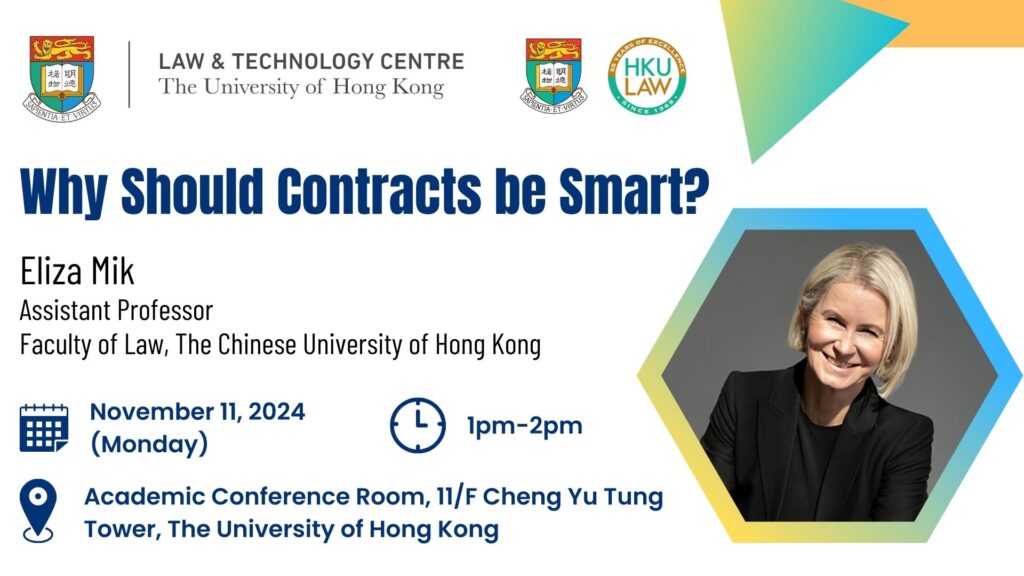Why Should Contracts be Smart?

Date: November 11, 2024 (Monday)
Time: 1pm – 2pm
Venue: Academic Conference Room, 11/F Cheng Yu Tung Tower, The University of Hong Kong
Speaker: Eliza Mik (Assistant Professor, Faculty of Law, The Chinese University of Hong Kong)
Many scholars and regulators have been as nonchalant about contractual doctrine and technical terminology as Sam Bankman-Fried has been about the funds of his investors. Countless hours and dozens of academic articles have been devoted to the question whether “smart contracts” are or could be contracts in the legal sense of the term. The debates are often characterized by an uninformed use of both legal and technical terms as well as by a disregard of basic legal principles. The parties can agree to express their contracts in any manner – including by means of code. It is unclear, however, why such expression would be necessary, not to mention why it would warrant a separate legal category. Existing literature barely addresses the critical question why or how contracts should be made smart, repeating the popular one-liner that “smart contracts provide commercial certainty by guaranteeing performance.” To fill this gap, this seminar bypasses the debate as to the legal character of smart contracts. Irrespective of how many times it is demonstrated that comparing computer programs to legally enforceable agreements constitutes a category mistake, the idea that such programs can be – or improve upon – contracts remains entrenched in many legal and technical analyses. Instead, this seminar asks: what would be the benefit of making a contract smart? How would this work in practice? What does it mean for a contract to be smart in the first place?
Eliza Mik teaches Legal Technologies, E-Commerce Law and Contract Law at the Faculty of Law, Chinese University of Hong Kong. Her research interests focus on the legal aspects of transaction automation, with special focus on smart contracts and the integration of Artificial Intelligence into commercial workstreams. Before joining academia, she worked in-house for a number of software and telecommunications companies in Australia, Poland, Malaysia and the United Arab Emirates, advising on technology procurement, software licensing and e-commerce regulation. Eliza has also assisted the World Bank and the Monetary Authority of Singapore. At present, she is a member of the UNCITRAL Expert Group for the Digital Economy, a member of the Inclusive Global Legal Innovation Platform on ODR (Hong Kong), a Research Associate at the Tilburg Institute for Law, Society and Technology and an Affiliate Researcher with the Centre for AI and Digital Ethics at the University of Melbourne.
To register, please go to https://hkuems1.hku.hk/hkuems/ec_regform.aspx?guest=Y&UEID=96964.
